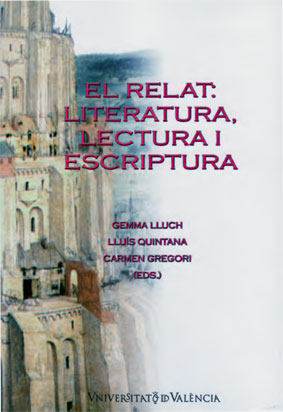Competence development in digital storytelling
DOI:
https://doi.org/10.7203/qf-elit.v18i0.3304Keywords:
reading, digital storytelling, educational skill, literary education, digital literacy, creativity Abstract
Abstract
Required readings in Language and Literature classes do not have as an objective to foster students’ creativity and the development of several competencies. Teenagers can have positive reactions when reading a literary text, however, their teachers do not usually take advantage of the multiple opportunities that books offer in the digital era. The article claims that the enjoyment of reading can accompany literary education and audiovisual literacy when combined with digital storytelling. The students create digital stories based on literary works and in that way reading also becomes a performative response which clearly has an educational value.
 Downloads
Downloads
Downloads
How to Cite
-
Abstract348
-
PDF (Español)0
-
PDF (Català)160
-
PDF54
Issue
Section
License
 Este obra está bajo una licencia de Creative Commons Reconocimiento-NoComercial-SinObraDerivada 4.0 Internacional.
Este obra está bajo una licencia de Creative Commons Reconocimiento-NoComercial-SinObraDerivada 4.0 Internacional.
Authors who publish with this journal agree to the following terms:
- Authors retain copyright and grant the journal right of first publication with the work simultaneously licensed under a Creative Commons Attribution License that allows others to share the work with an acknowledgement of the work's authorship and initial publication in this journal.
- Authors are able to enter into separate, additional contractual arrangements for the non-exclusive distribution of the journal's published version of the work (e.g., post it to an institutional repository or publish it in a book), with an acknowledgement of its initial publication in this journal.
- Authors are permitted and encouraged to post their work online (e.g., in institutional repositories or on their website) prior to and during the submission process, as it can lead to productive exchanges, as well as earlier and greater citation of published work (See The Effect of Open Access).




